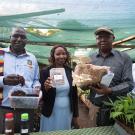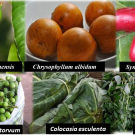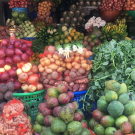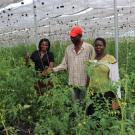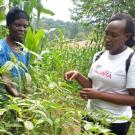Horticulture Innovation Lab research related to gender addresses ways horticulture can provide a pathway for women to improve their household's income and nutrition. Providing women equitable access to agricultural inputs and extension information can allow them to make better use of the benefits that horticultural crops can offer. The program has also purposely offered gender-focused training to its researchers, to enable them to better incorporate gender considerations into their research processes.


